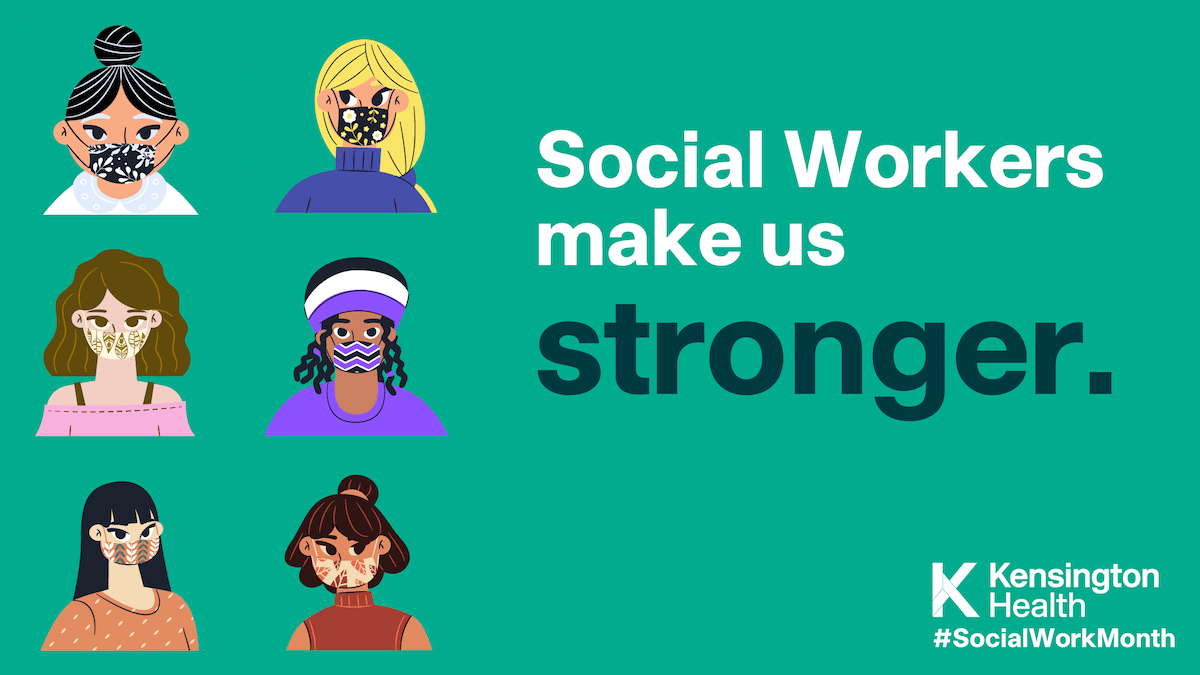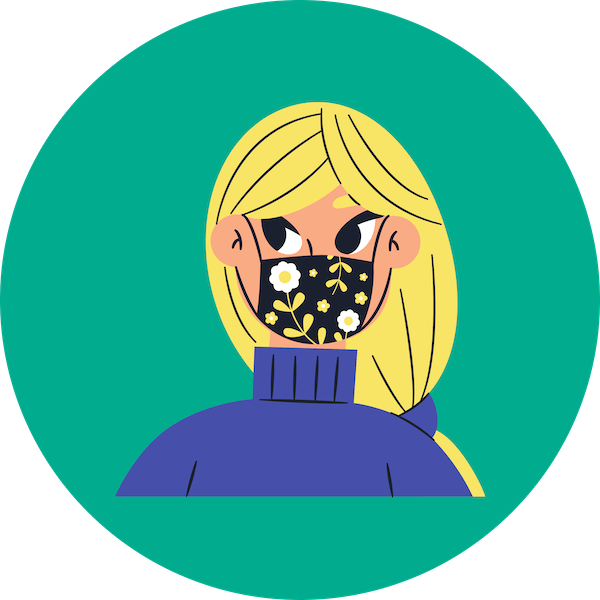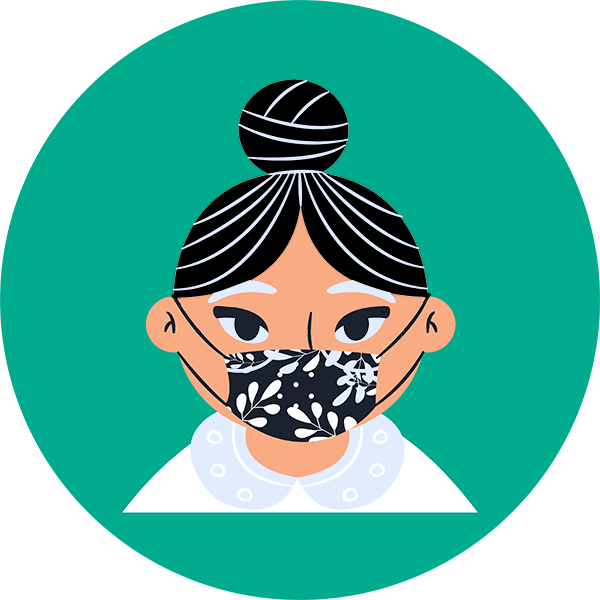
This year has brought many changes, forcing us all to adapt quickly to a ‘new normal’ that is keeping us all safe. But the important restrictions that help slow the spread of COVID-19 also risk negatively impacting people’s mental health, made worse by isolation, fear and anxiety.
This is where our social work team at Kensington Health has been so important. They are here to help our community navigate their most challenging situations, and this year they have been so important.
Not only have Kensington’s social workers provided support throughout the crisis, they continue to provide the essential resources that our clients depend on like securing affordable housing or organizing groceries deliveries to their homes. Our social workers make sure that no one in our community is struggling alone.
All our social workers play an important role in the lives of our clients and patients. So, this Social Work Month, we wanted to introduce this team of community builders, carers and supporters.
From now until the end of March, we will introduce a different member of our social work team. Come back to this page to meet more team members.

Meet Emily D.
Community Case Manager, Second Mile Club
Emily knows that having choices in what you do, being independent and living a fulfilling lifestyle is important to her clients. That is why she supports her clients with every and anything that they need, which can range from securing affordable housing to connecting them to mental health supports.
Emily finds that keeping in contact with her clients have reminded them that they are not alone: “Sometimes, it could be contacting them once a week through the phone and asking how their week is going. Other times, it’s trying to get them connected through our Zoom. But overall, it’s trying to maintain that contact and keep them assured that whatever’s troubling them will be resolved.”
Emily also reminds us that it’s fine to want to be alone, even now: “There’s a balance between having contact and not having any contact. It’s entirely okay to not want to talk to people one day, but when you do have that urge to have that connection and have that social call, know who you can reach out to so you’ll stay connected.”

Meet Tanya D.
Client Services Coordinator, Kensington Gardens
Moving into long-term care is an exhausting process for a lot of families and their loved ones, but Tanya ensures that the transition process is as smooth as possible. She leads the admissions process at The Gardens, our long-term care home.
Helping new residents settle happily into their new home makes her proud: “A lot of my job consists of looking for ways to support and observing the effects of transitioning into The Gardens. I aim to recognize what may be triggering for new resident through visiting them and connecting with family members.”
Tanya’s best self-care tip is leaning on your community, and for her, that’s her colleagues: “People at work become your closest allies. They are the people that you talk to and see every day and being able to rely on your team members and having that relationship is essential.”
With everything going on throughout the pandemic, Tanya has a reminder: “If you’re feeling overwhelmed, take a breather. You’re allowed to be stressed and have feelings. It’s okay, and COVID is hard. You’re allowed to have days where you’re not okay, and just holding space for that is important. Recognize your feelings.”

Meet Christina B.
Social Worker, Kensington Gardens
Christina supports families and caregivers with loved ones living at The Gardens. She helps them navigate care decisions for their loved ones. Especially, Christina supports families and caregivers when a resident is dying. She walks them through key information about the dying process and explains how the medical team manages their loved one’s symptoms: “I find that just being able to provide that on-going information, support and reassurance can be very helpful for families that are coping with those final days.”
Christina enjoys making sure residents are not feeling down: “I try to be supportive and help our residents battle isolation by spending time and being available to them when they ask to see me. I let them know that I’m there and available by phone or in-person when they need me, whether to listen to their conversations or concerns.”
Friends, family, and her fellow colleagues have been a huge factor in keeping Christina from feeling isolated: “I feel comfortable that there’s people I can speak to when I’m feeling worried, sad, or anxious about what’s happening.”
Christina has also relied on different meditation exercises which have kept her calm throughout the pandemic: “I do things like breathing exercises and taking online seminars on relaxation that help remind me to have gratitude. Going for walks has also helped me maintain my mental health.”

Meet Diane L.
Behavioural Support Social Worker, Kensington Gardens
Diane is a Behavioral Support Social Worker at The Gardens. She works closely with the Behavioral Support and Life Enhancement team, helping residents in our long-term care home whose behaviors point to issues with their quality of life or mental health. Especially with residents who have dementia, behaviors like getting lost are often signs something could be wrong.
Diane identifies what might be impacting a resident’s mental health and wellness. She then works with teams at Kensington and the resident’s family to determine what works best to continue to improve the resident’s quality of life, mental health and social interactions.
One of Diane’s tool of choice is one-on-one supports. Talking with residents about their thoughts and worries can be therapeutic, such as a check-in or a call to see how they are doing: “Finding ways to engage residents and help them feel less isolated in this pandemic is something that not only myself, but every staff member at Kensington is working together to combat.
For Diane, her coworkers and family are her biggest support systems: “They help me feel less lonely in this pandemic. Being in a long-term care setting, we all feel the pandemic’s changes and impacts. Having my coworkers there and going home and being in the presence of my family is a big source of support for me.”
Embracing nature has been a soothing aspect for Diane: “It’s very calming and peaceful where it feels like the pandemic doesn’t really reach. You tend to be more mindful and present, and it’s easier to let go of those negative feelings of the pandemic.”

Meet Sean A.
Community Case Manager, The Second Mile Club
Sean understands that his clients in the Second Mile Club enjoy the freedom that comes with being independent older adults. That’s why he focuses on helping his clients maintain their independence within the community. From daily tasks such as filling out forms to helping clients living with disabilities transition from the Ontario Disability Support Program (ODSP) to Canadian Pension Plan (CCP), Sean is there to help connect his clients to the resources they need, and he does this all while supporting their emotional and mental health.
While it might seem simple, a conversation is Sean’s best tool for helping his clients: “It’s all about listening and letting them know I understand what they’re going through and reassuring them that things will change."
Sean follows his own advice. He stays connected and active to manage the stress of this year: “For me, I keep in contact with my family once a week and stay connected with friends through our online group chat. With COVID around, I focused on getting to know more about myself, who I am and what I like. I ended up re-discovering old hobbies such as writing that have been really helpful for me.”
Sean has a tip to help you in this stressful time: “Learn more about yourself, and become more comfortable with who you are, and try to keep yourself engaged. We have a lot more time now by ourselves, so it’s great to make your space as comfortable as possible, even if that’s changing your comfort levels every day. Whatever will keep you engaged and keeps your mind focused on something positive, so you don’t have to think about that loneliness or isolation.”

Meet Evelyn C.
Program Coordinator, Kensington Hospice
Evelyn helps Hospice residents and their families as they navigate the dying process. She is there to help remove the barriers – like getting time off work or finding financial supports – so that families can focus on their final moments together.
When it comes to comforting her residents, Evelyn emphasizes the importance of just being there to listen: “It’s paying attention. It’s focusing your time and energy on the person. Whether it’s a happy moment, a sad moment, a joyful or tearful moment, we’re there. The best thing we can do is to be present.”
Evelyn relied on her connections here at Kensington to make it through this difficult year: “I am extremely fortunate to come to work, to not only have the Hospice team, but to have the Second Mile Team, particularly the Case Managers here when sometimes you just need a safe space to be and that has certainly helped a lot. My work connections have provided me the stability and grounding that I need to do what I do every day.”
But she also finds comfort in those precious moments of solitude: “Spending time on my own helps me clear my head. Even if its five minutes of silence, and sometimes it just gives you time to gather your thoughts and finding your center again.”